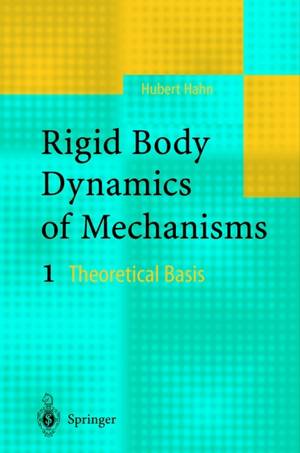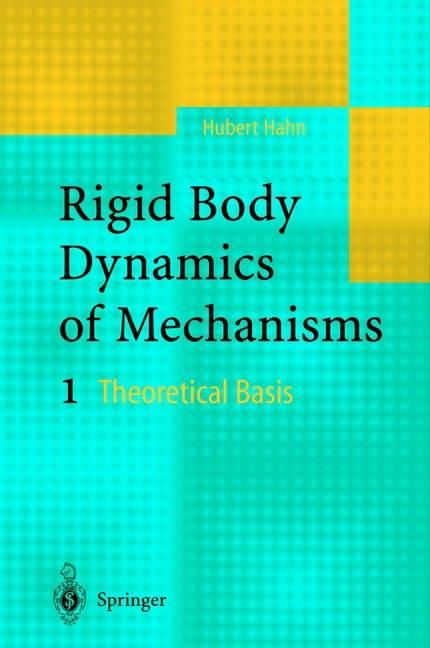
Door een staking bij bpost kan je online bestelling op dit moment iets langer onderweg zijn dan voorzien. Dringend iets nodig? Onze winkels ontvangen jou met open armen!
- Afhalen na 1 uur in een winkel met voorraad
- Gratis thuislevering in België vanaf € 30
- Ruim aanbod met 7 miljoen producten
Door een staking bij bpost kan je online bestelling op dit moment iets langer onderweg zijn dan voorzien. Dringend iets nodig? Onze winkels ontvangen jou met open armen!
- Afhalen na 1 uur in een winkel met voorraad
- Gratis thuislevering in België vanaf € 30
- Ruim aanbod met 7 miljoen producten
Zoeken
€ 158,45
+ 316 punten
Uitvoering
Omschrijving
The dynamics of mechanical rigid-body mechanisms is a highly developed discipline. The model equations that apply to the tremendous variety of ap- plications of rigid-body systems in industrial practice are based on just a few basic laws of, for example, Newton, Euler, or Lagrange. These basic laws can be written in an extremely compact, symmetrical, and esthetic form, simple enough to be easily learned and kept in mind by students and engi- neers, not only from the area of mechanics but also from other disciplines such as physics, or mathematics, or even control, hydraulics, or electronics. This latter aspect is of immense practical importance since mechanisms, ma- chines, robots, and vehicles in modern industrial practice (sometimes called mechatronic systems) usually include various subsystems from the areas of hydraulics, electronics, pneumatics, informatics, and control, and are built by engineers trained in quite different disciplines. Conventional methods of modeling rigid-body mechanisms In contrast to the comparatively simple and easy-to-learn basic laws of rigid- body systems, the practical application of these laws to the planar or spatial motions of industrial mechanisms rapidly leads to extremely lengthy and complex equations of motion, where the form and complexity of the model equations depends critically on the choice of the model coordinates. Until recently this had the following consequences: 1. A large variety of specialized techniques have been developed, each suit- able for efficiently modeling a special-purpose mechanism.
Specificaties
Betrokkenen
- Auteur(s):
- Uitgeverij:
Inhoud
- Aantal bladzijden:
- 336
- Taal:
- Engels
Eigenschappen
- Productcode (EAN):
- 9783642076176
- Verschijningsdatum:
- 30/11/2010
- Uitvoering:
- Paperback
- Formaat:
- Trade paperback (VS)
- Afmetingen:
- 156 mm x 234 mm
- Gewicht:
- 498 g

Alleen bij Standaard Boekhandel
+ 316 punten op je klantenkaart van Standaard Boekhandel
Beoordelingen
We publiceren alleen reviews die voldoen aan de voorwaarden voor reviews. Bekijk onze voorwaarden voor reviews.











